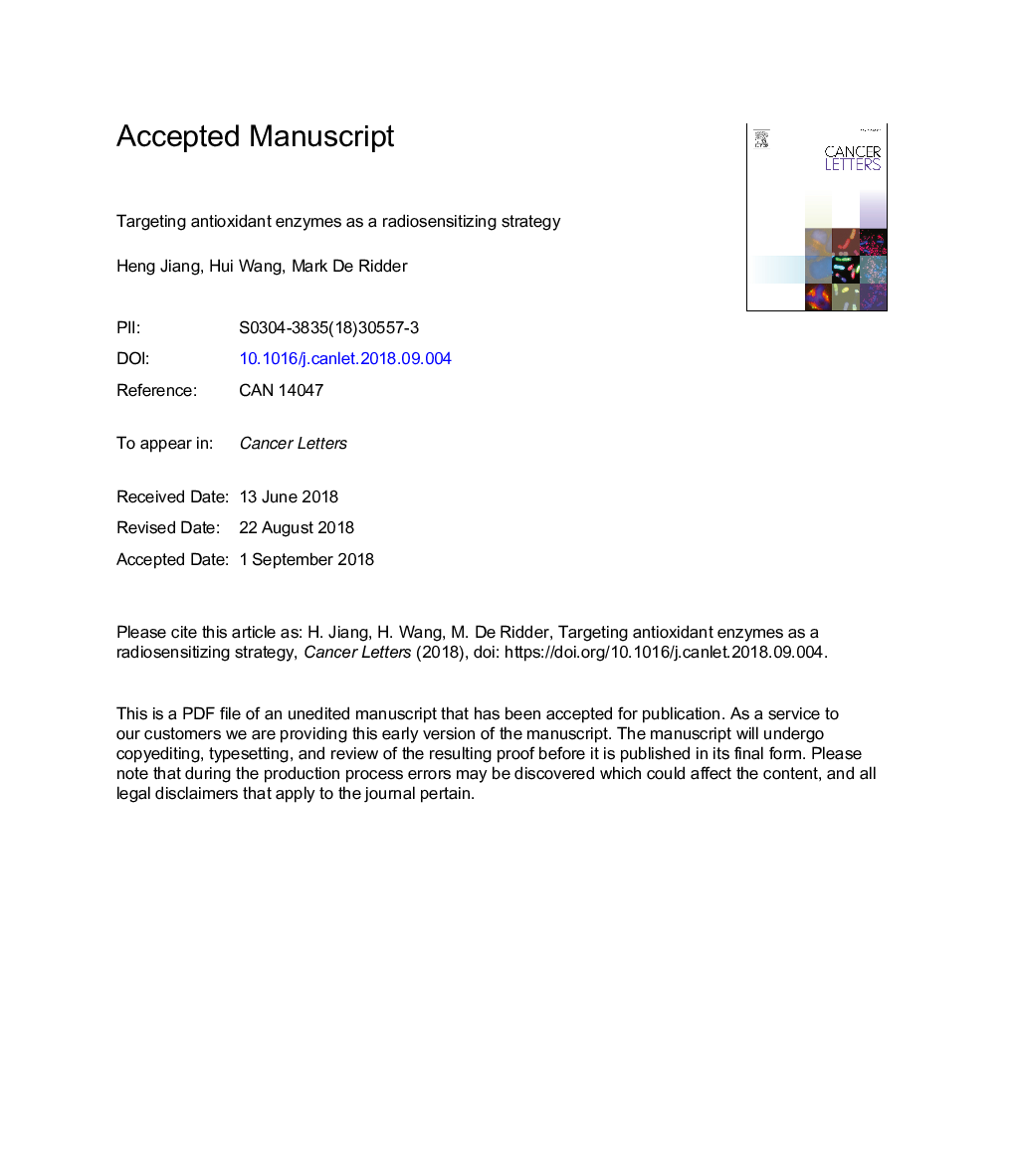| Article ID | Journal | Published Year | Pages | File Type |
|---|---|---|---|---|
| 10157498 | Cancer Letters | 2018 | 32 Pages |
Abstract
Radiotherapy represents a major anti-cancer modality and effectively kills cancer cells through generation of reactive oxygen species (ROS). However, cancer cells are commonly characterized by increased activity of ROS-scavenging enzymes in adaptation to intrinsic oxidative stress, leading to radioresistance. Abrogation of this defense network by pharmacological ROS insults therefore is shown to improve radioresponse in preclinical models; some of them are then tested in clinical trials. In this review, we address (1) the importance of ROS in radioresponse, (2) the main systems regulating redox homeostasis with a special focus on their prognostic effect and predictive role in radiotherapy, and (3) the potential radiosensitizers acting through inhibition of antioxidant enzymes.
Related Topics
Life Sciences
Biochemistry, Genetics and Molecular Biology
Cancer Research
Authors
Heng Jiang, Hui Wang, Mark De Ridder,
